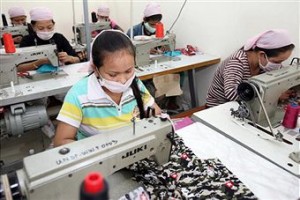December 20, 2010 8:17 am
by Tim Johnston
by Tim Johnston

If Cambodia is known for investment at all, it is known for low-cost, low-margin industries such as textiles, but there are signs that the country could be starting its own journey up the value chain.
Minebea, the Japanese precision component manufacturer, has just announced that it is to build a Y5bn component factory near Phnom Penh, in a move to build up its Southeast Asian production network.
Under the new arrangement, the Cambodian facility – which will manufacture small and mid-sized motots for home electronics – will receive parts from Minebea’s plant in Thailand, Dow Jones reports.
The Japanese company has announced that production will start in April 2011 and that it will begin by leasing facilities within Phnom Penh’s Special Economic Zone. At a later date the company will build a new plant where production will start at the end of 2012 with 5,000 workers.
For investors, Cambodia offers a number of attractions: it is stable (even if its democratic credentials are somewhat tarnished), labour is cheap, and its largely dollarized economy makes it particularly attractive for Japanese investors, who have watched with dismay as the yen has appreciated more than 9 per cent against the dollar year to date.
But it lacks infrastructure and high quality human resources, and its buccaneering business environment has put off all but the hardiest investors.
Regional players, however, are showing increasing interest. China is the biggest investor, but Vietnamese and Korean companies are also coming in, particularly in primary industries such as rubber, mining and power generation.
Textiles still represent some 75 per cent of exports by value, and the financial crisis taught some tough lessons. According to the Asia Foundation’s Veronique Salze-Lozac’h:
Cambodia’s economy remains dangerously dependent on a narrow range of sectors, including rice-based agriculture, garments, tourism, and construction. The recent economic crisis has proven how vulnerable such a narrow economic base can be, and demonstrated, more acutely than ever, the necessity for diversification.
But it’s not doing so badly for all that. The IMF expects the economy to expand 4.8 per cent this year and 6.8 per cent next.
And with a new Japanese precision plant to boast about, Cambodia may see a bigger change in heart for investors.
Related reading:
Cambodia: Asia’s mini-tiger, beyondbrics
Cambodia: Asia’s mini-tiger, beyondbrics

No comments:
Post a Comment